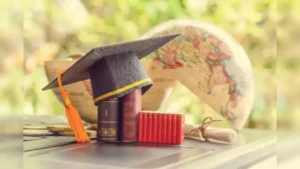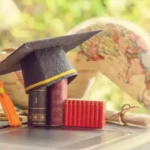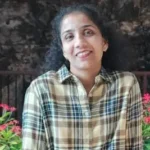As part of The Lighthouse Project, Aaria Chandwani, Adarsh Chittimoori and Saachi Gonzalez Chennur connect with children of their age from across the globe during the weekends, chatting and doing activities together. This is not because they are having a fun leisure time doing viral challenges together – The Lighthouse Project is not about that. The trio started this project in March this year with the help of 1M1B (1Million for 1 Billion) Foundation’s future leaders programme.
The three, all Class X students at Hyderabad’s Chirec International School, have been invited as delegates to the 1M1B summit to be held at the United Nations in May/June 2021. 1M1B is a non-profit organisation with a mission to activate one million young leaders who will impact one billion people for a sustainable planet. Explaining 1M1B, Adarsh says, “1M1B is aligned to the United Nations Sustainable Development Goals (SDGs) and is a United Nations accredited non-profit organisation with consultative status to the UN Economic and Social Council (ECOSOC) and associated with the United Nations Department of Global Communications.”
To connect with children of their age and learn about each other, they hold virtual meetings. They have connected with children in Pakistan and the Philippines and exchanged knowledge about their food habits, festivals and customs. As Adarsh says, “Learning and understanding each other’s cultures will help us be more acceptable and appreciative of one another.” In Hyderabad, apart from Chirec, the Pebble Creek and Future Kids are part of the project.
Aaria says, “We started The Lighthouse Project because of the pandemic. Earlier, we were working on issues of sanitation and hygiene for those who cannot afford it. We had conducted interviews in the process. When the pandemic happened, we had to drop our earlier project. That is when we focussed on TLP.”
Through TLP, children connect and discuss various issues. During one such discussion, the trio came across a boy who was discriminated against in class by his teacher because of his religion. “He was seven years old when he faced it, and it still bothers him now, as a teenager,” adds Aaria. This made the trio focus on talking about discrimination. They aim to start a chain reaction that will make each one think before they want to discriminate against a fellow teenager.
Aria explains, “We focus on reducing cultural, religious and regional discrimination by helping the youth connect across communities and countries. We help them understand their subconscious thoughts and change minds in their households. Students who are unable to do it, reach out to us so they can convince their loved ones.”
As for those who face discrimination, the three give them a patient hearing. “Sometimes hearing each other out also helps. While we cannot tell our friends how to react when they face discrimination, we want to educate each other,” adds Saachi.








